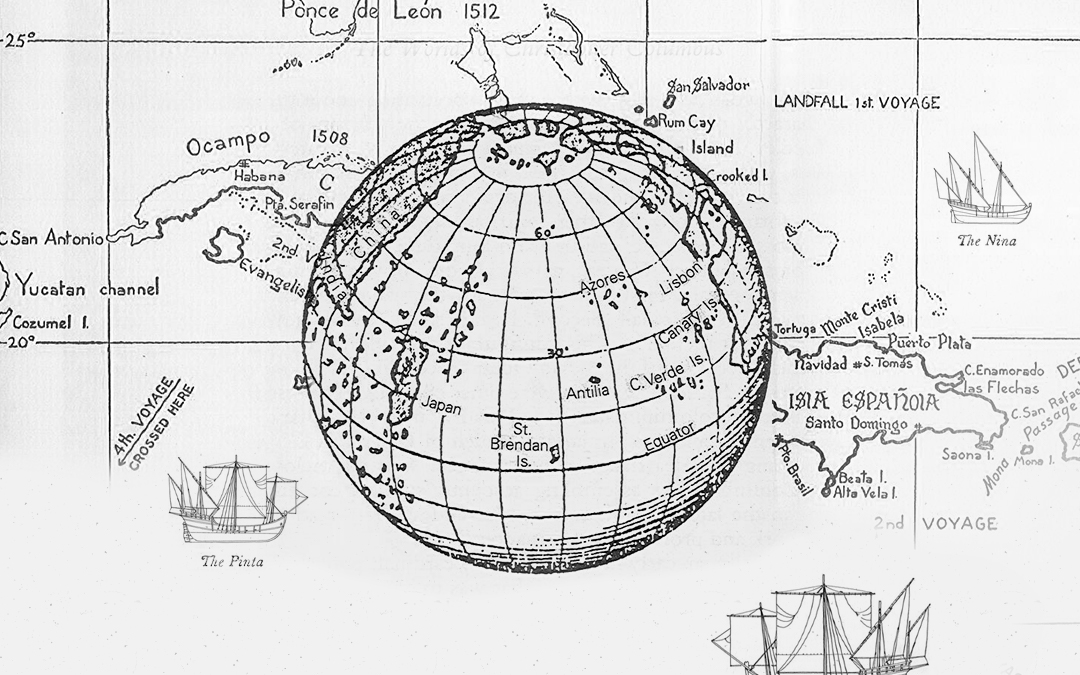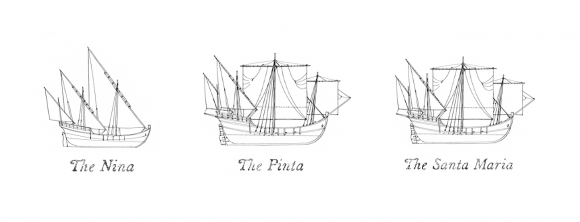By Connor Cigrang, SBM Student Writer & Kendra Sommers, SBM Culture Section Editor
There’s an elementary school poem that goes, “In fourteen hundred ninety-two, Columbus sailed the ocean blue.”
This catchy poem has served as a reminder of the voyage Christopher Columbus made to the New World. Columbus’ accomplishments were significant, introducing the New World to Europe and claiming the land for Spain. However, for years his legacy and celebration have come under scrutiny.
The reality is that the tactics and methods Columbus used are questionable, certainly by modern standards. History tells us that he used violence and fear against the Native Americans in order to gain control. Some have become so opposed to commemorating what Columbus did that they have protested his celebration in our nation’s capital, and so led the fight for changing Columbus Day.
 Dr. Jenell Paris, professor of anthropology, provided insight on this subject “I think in the past, Columbus Day was obvious. We’re celebrating us and we’re celebrating the beginning of our country. But if you expand your idea of ‘us’ and you expand your idea of who belongs in ‘our’ country, then it gets really complicated.”
Dr. Jenell Paris, professor of anthropology, provided insight on this subject “I think in the past, Columbus Day was obvious. We’re celebrating us and we’re celebrating the beginning of our country. But if you expand your idea of ‘us’ and you expand your idea of who belongs in ‘our’ country, then it gets really complicated.”
Christopher Columbus traveled to the New World with a goal of seeking an alternative water route to India by means of the West. Records indicate that after first arriving in the New World (landing in what is considered the modern-day Bahamas), he ordered his men to seize six natives and wrote in his journal that he thought they would make good slaves. He forced labor on them and even sent thousands of Taino “Indians” overseas to be sold as property in Spain; a voyage that most did not survive. According to records, within 60 years of Columbus landing in the New World, only several hundred of what was thought to be 250,000 Taino were left on the island.
Columbus acted in a common manner that would have been seen as appropriate during the 15th century, regardless if this considered a satisfactory justification. Of course, he was not the only person on his
expedition, much less in Spain, who felt privileged in this way. Nevertheless, Columbus’ forced conversion methods and cruelty towards slaves introduced a precedent for how the New World’s foundations would rest1. How then do we celebrate Columbus Day in 2019? What is being celebrated?
As Americans, we have always instinctually celebrated Columbus Day as a national holiday in order to celebrate the discovery of the Americas. This is all considering that Columbus was not the first explorer to discover or land in the Americas. Once you look past the surface and look at the reality of what is being celebrated, you can see how it is a multidimensional issue.The many facets of the “Columbus controversy” stem from how Americans still celebrate the “birth of their nation” without acknowledging the methods used in an outdated process. Recently, it has broken into the mainstream, allowing more people to talk about the history of Columbus’ discovery. This is perhaps the biggest difference in how the holiday is viewed now, versus how it was viewed a few decades ago.Dr. Paris echoed similar sentiments questioning, “How do we celebrate a country with a conflicted past and how do we celebrate political identity when our political history includes wonderful things, like democracy, but also slavery and taking indigenous land?”
Is the celebration for Columbus himself? Can his accomplishments be separated from his actions?
Dr. Andrew Hermeling, adjunct professor of history, said, “People are beginning to realize that Columbus didn’t discover anything. Instead, this is the day that settler colonialism and trans-Atlantic slavery also arrived on the continent that came to be known as North America.”
If America is to continue to move forward as a nation, there needs to be a recognition of Columbus’ actions and a more intentional consideration leaving Columbus Day behind. This is especially considering the fact that there have not been any formal celebrations of the indigenous Americans that were persecuted and slaughtered throughout history.
Parts of the United States have already begun adopting a new version of Columbus Day – Indigenous People’s Day. This day represents the heritage and culture of the American natives and the first origins of the United States. It is a way to honor as well as celebrate the rich history and traditions of this nation’s native people. Rather than celebrate Columbus and his discoveries, this new version focuses on those whom he harmed and who were the true start to America. For the first time, the country is beginning to publicly acknowledge the issues with Columbus Day that have been ignored for far too long.
This October, look at making strides towards equality. Instead of celebrating Columbus, commemorate those who endured him.
This article can be found in the October issue of the Swinging Bridge Magazine.

